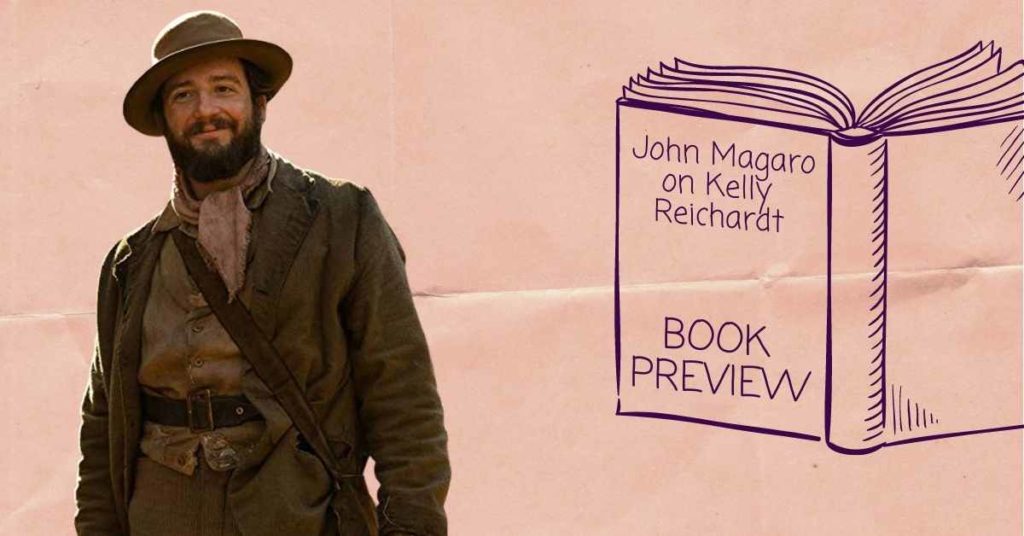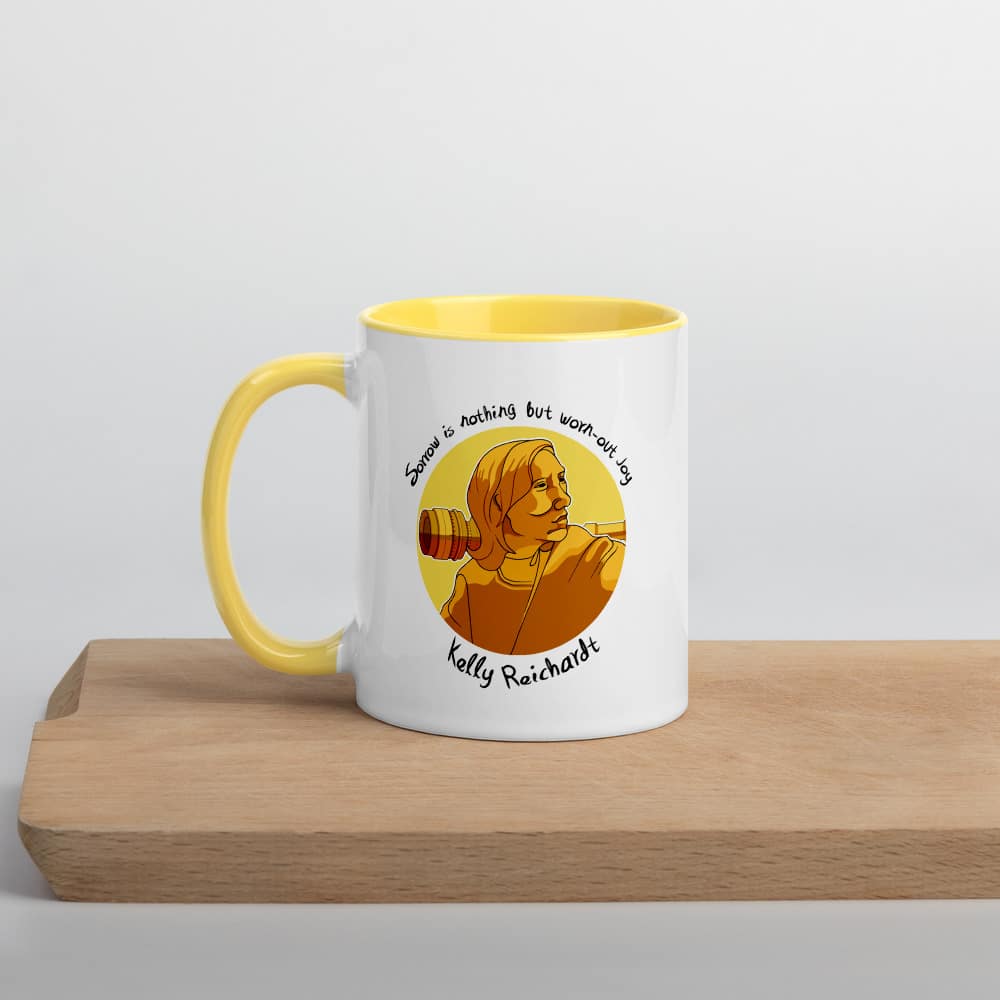First Cow star John Magaro on the liberating experience of acting in a Kelly Reichardt film and how he got into character by cooking stews. This is an excerpt of our Reichardt ebook, Roads to nowhere.

As Cookie Figowitz, character actor John Magaro faced a similar challenge to Kelly Reichardt’s previous male leads, Daniel London (Old Joy, 2006) and Jesse Eisenberg (Night Moves, 2013). All of these characters are quiet, withdrawn men who speak very little, so most of what we know about them is communicated through their silent reactions to the people and the world around them. Magaro, like Eisenberg and London, has an open, expressive face that speaks volumes about Cookie’s sensitivity and caring nature, without having to say a word.
It’s hard to overstate what an unconventional male lead Cookie is: by centreing the narrative around him, Reichardt insists that we should be interested and invested in this man who is docile and sensitive. Even Orion Lee’s King-Lu, the talkative and charming man who strikes up a friendship with Cookie, is a more conventional movie lead, yet we primarily focus on Cookie who is content to sit and listen.
Playing him was “very liberating,” Magaro told me, since when do actors get a chance to just be rather than overtly perform? It’s certainly a far cry from his neurotic and ill-tempered character in Orange is the New Black (Jenji Kohan, 2013-2019), a lonely man who strikes up a pen pal relationship with a prisoner and then impulsively marries her, or his well-intentioned but weasely character in Carol (Todd Haynes, 2015), a photographer who flirts with Rooney Mara’s Therese while she’s still with her boyfriend. Magaro reveals the quiet Cookie through how he milks a cow, bakes an oily cake, and listens to his friend speak.
Seventh Row (7R): When you read the script for First Cow, what excited you about playing Cookie?
John Magaro: I knew Kelly’s work before I got the script for the film so I had an awareness of her and her style. Right away, I was pretty certain I’d want to be part of it. Reading the script confirmed that even more. There’s an economy of language and of action in the stories that she writes with Jonathan Raymond. There’s a very sparse nature. People only say what needs to be said. People only do what needs to be done. It’s a challenge, but it’s also very exciting.
7R: Your dialogue, in particular, is sparse, because Cookie speaks so rarely. So much of what you’re doing is listening and reacting. What challenges and opportunities come with playing a character like that?
John Magaro: It’s a challenge for an actor to do that, but it’s also very liberating, because you can just live in the moment. That’s what we attempt to do, as actors. The way Kelly tells stories really allows you to just sink into it like a pillow or a warm couch, just sink into the role and the world, and let it guide you. It’s a fascinating thing. The words and the language tend to wash over you in a way that feels almost second nature when you’re speaking. She creates an element of trust, too, so you feel safe doing that. It’s a joy. You’re just present and listening.

Kelly Reichardt mug: ‘Sorrow is just worn-out joy’
7R: My understanding is that Kelly blocks out her actors’ movements quite precisely when she shoots scenes. How does her shooting approach affect your performance?
John Magaro: I didn’t feel like it was so rigid as far as blocking is concerned. Maybe if you’re an actor who feels like you need to add more and move more than is called for in the script, then it would be tempered down. But there’s an economy of movement and action in her writing and how she directs. If you’re willing to go on that journey, and you’re doing what’s dictated by the script, then I don’t feel like it was very inhibiting at all.
7R: What kind of research did you do into the time period and baking?
John Magaro: The first thing I tend to ask directors is if there’s books or artwork or music or anything that’s inspiring them. So I asked Kelly that. She sent me some pictures; she mentioned some films that I watched; and she also sent me some books. Some of the books were non-fiction. She also sent The Half-Life book [which the film is based on].
One of the most intriguing things, for me, were the cookbooks she sent. She sent me a Lewis and Clark cookbook, and she sent me another frontier cooking pamphlet, as well as a mushroom-foraging catalogue. In my preparation for the role, I found myself cooking through most of these cookbooks — a lot of stews and baking and things like that. That style of cooking is very unique to the rustic, rural frontier life. It’s very different than how folks in the city tend to cook. It helped transport me into this world and this character.
The style of cooking takes a tremendous amount of patience — lots of time and focus. I found that started to drop me into the character’s gentleness and quietness and patience, as he lets a stew develop. That’s how Cookie is: he’s patiently watching, letting it brew and marinate… THIS IS A PREVIEW. READ THE FULL INTERVIEW IN ROADS TO NOWHERE: KELLY REICHARDT’S BROKEN AMERICAN DREAMS.
Want to read the rest of the article?
Get the ebook.
Roads to nowhere: Kelly Reichardt’s broken American dreams will take you on a journey through Reichardt’s filmography.
It’s also the only place you can find interviews with her and all her collaborators, which together reveal Reichardt’s filmmaking process like never before.

